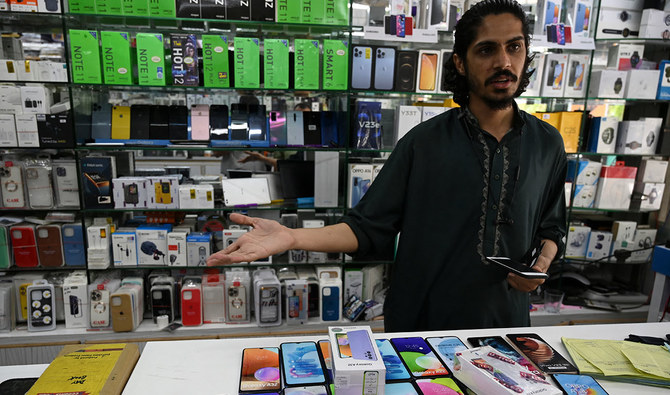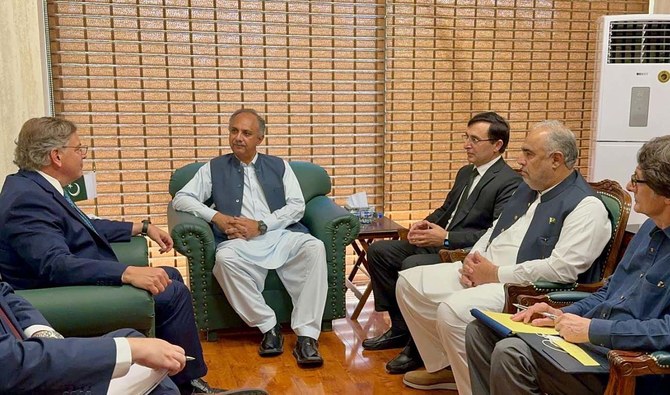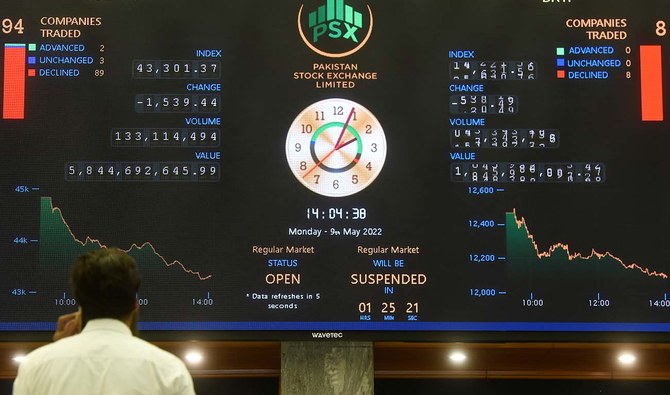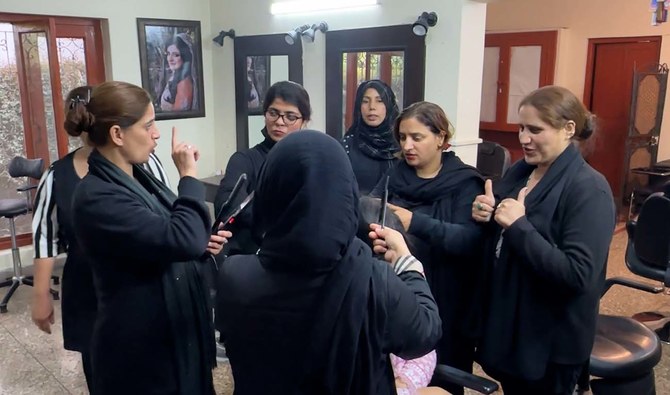KARACHI: Pakistan’s telecom operators said on Friday the industry was facing an “existential crisis” due to the depreciation of national currency which was increasing their operational costs while disrupting investment planning.
The country has witnessed a major spike in cellphone usage in recent decades, taking its tele-density to 86.34 percent. According to official figures, Pakistan has 193 million cellphones and 122 million mobile broadband subscribers.
Telecom operators pay license fees and interest on instalments in the United States dollar, though they make their earnings in the Pakistani rupee which has depreciated by 25.93 percent during the current fiscal year. On Friday, the national currency also hit a new historic low of Rs276.58 against the greenback.
Given the current financial situation of the country, leading telecom players find themselves in troubled waters amid reduced profitability and declining possibility of expanding business.
“The telecom industry faces an existential crisis due to the continued devaluation of currency,” Irfan Wahab Khan, CEO of Telenor Pakistan that boasts of 25.11 percent market share, told Arab News.
“With the spectrum price and all its future instalments and interest payments in USD, each time the rupee devalues, it causes the overall price to increase significantly, impacting our profitability and making any future investments nearly impossible,” he continued.
The Telenor chief said the escalating interest rates and cost of capital, along with excessive fuel, electricity and other input costs, had severely affected the company’s operations.
Another industry player, Pakistan Mobile Communication Limited (PMCL), which operates under the name of Jazz and owns 38.23 percent market share, has also sounded alarm bells.
Aamir Hafeez Ibrahim, the Jazz CEO, took to Twitter on Thursday to highlight the prevailing challenges, saying the rupee devaluation had jeopardized the business case for telecom companies.
Ibrahim noted that 50 percent license renewal fee cost the company Rs44.5 billion last year. However, its 10 percent instalment this year was somewhere over Rs13 billion.
“Due to ongoing currency devaluation we’re unable to determine the amount we’ve to pay in instalment next year adding to uncertainty that no business plan can withstand,” he said in a Twitter post, adding: “Sadly wrong policy of pegging telecom license price to [US dollar is] pushing us from #DigitalEmergency to #DigitalCatastrophe.”
Last month, the PMCL paid Rs24.24 billion ($105.80 million) license renewal fees to the telecom regulator, Pakistan Telecommunication Authority (PTA).
Ibrahim said that telecom was a cross-sector enabler, building digital highways and facilitating other economic areas to create value as well.
“Unfortunately, in our country, the industry is still perceived as an opportunity to fill short-term revenue gaps for the government, which consequently deters a broader and longer-term policy agenda aimed at expanding universal broadband coverage, enabling everyone to access education, health care, banking, and other quality of life improving services,” he told Arab News.
“While we have talked a lot about Digital Pakistan, without the right policy interventions we could actually be looking at digital dark ages,” he added.
Telecom operators and industry experts agreed the solution to the current depreciation problems was to link spectrum prices with local currency and alleviate some tax burden.
“The government is in a position to mitigate the industry’s risk,” said the top Telenor official. “For starters, the spectrum price can be denominated in local currency as most countries do. This also helps alleviate the risk of currency devaluation.”
He also called for “rationalization of taxation” on cellular services and handsets along with reduction of regulatory dues.
Parvez Iftikhar, an international consultant on telecom policy and regulation, agreed with both the suggestions.
“When the operators say they are earning in local currency, they are right in demanding that the spectrum fee must also be paid in Pak rupees because it is not something that they import and pay in dollars,” he said while speaking to Arab News.
He denied having any knowledge of the actual profitability of telecom operators, though he maintained one way of measuring that was to look at their investment in the country.
“I don’t see any significant investment in Pakistan as compared to India and Bangladesh etc.,” Iftikhar said, adding: “This shows that the returns are not significant.”
“The telecom sector only needs enabling environment and facilitation to grow further,” he continued.
According to the PTA, the telecom industry revenue increased to about Rs694 billion during the last fiscal year and it contributed over Rs325 billion to the national exchequer.
















